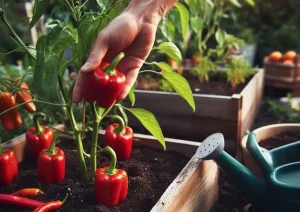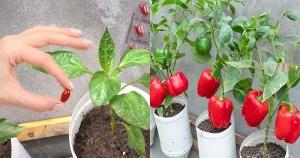Establish a consistent watering schedule to keep the soil evenly moist. While peppers prefer slightly drier conditions between watering, ensure they receive enough water to prevent stress and promote steady growth. Use a drip irrigation system or a watering wand to target the base of the plants.
7. Regular Soil Testing
Periodically test the soil in your containers for nutrient levels and pH balance. Adjust the soil composition as needed to ensure your peppers have access to the essential nutrients required for optimal growth and fruit production.
8. Natural Pest Deterrents
Integrate natural pest deterrents such as garlic spray or pepper-based solutions to ward off unwanted insects. These eco-friendly alternatives minimize the impact on beneficial garden organisms while effectively protecting your pepper plants.

9. Temperature Monitoring
Be mindful of temperature fluctuations, especially in container gardening. Peppers thrive in warm conditions, so monitor temperatures to prevent stress-related issues. Consider using shade cloth during excessively hot periods to shield your plants.
